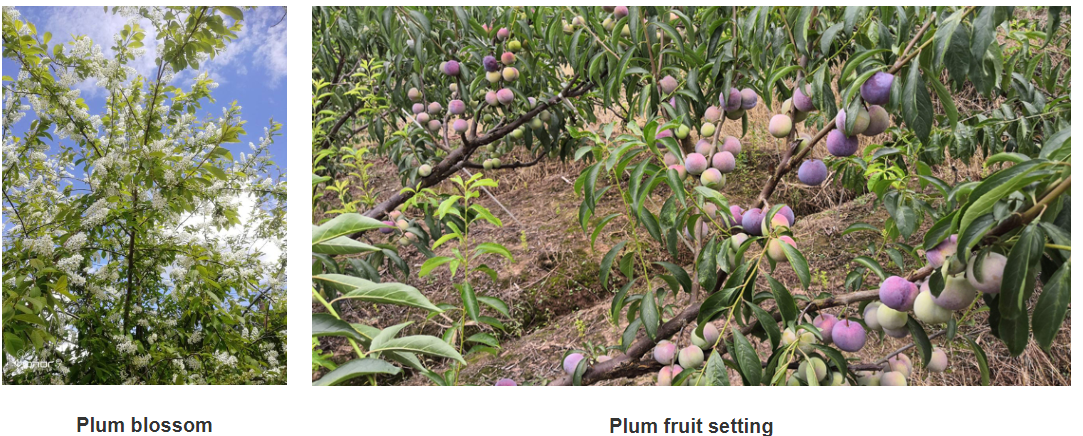Dec . 11, 2024 07:28 Back to list
pollen for pollination in cherry orchard
The Role of Pollen for Pollination in Cherry Orchards
Pollination is a critical process in the life cycle of flowering plants, particularly for fruit-bearing species like cherries. In cherry orchards, proper pollination is essential for maximizing fruit yield and ensuring the healthy development of cherries. This article delves into the significance of pollen in the pollination process, the various pollinators involved, and the best practices for optimizing pollination in cherry orchards.
Cherry trees (Prunus avium and Prunus cerasus), commonly known as sweet and sour cherries respectively, are typically self-incompatible, meaning they require pollen from another tree to produce fruit. This characteristic allows for genetic diversity but also necessitates careful planning in orchard management to ensure sufficient cross-pollination. The key to effective pollination lies in the availability and quality of pollen, which directly influences the fruit set and overall yield.
The Role of Pollen for Pollination in Cherry Orchards
The timing of cherry blossom emergence is also vital for successful pollination. Cherry trees bloom in early spring, and the weather during this time can significantly impact the activity of pollinators. Cool temperatures or rain can deter bees from foraging, leading to poor pollination rates. Thus, orchard management must account for environmental conditions and potentially leverage techniques to protect blossoms from adverse weather.
pollen for pollination in cherry orchard

To maximize pollination success, cherry growers often employ various strategies. One of the most effective methods is to plant compatible cherry varieties within proximity. These varieties can provide ample pollen during the blooming period, enhancing cross-pollination rates. For instance, planting sweet cherry varieties like Bing and Lapins next to one another has shown to increase fruit set due to their overlapping bloom times and compatibility.
Another important consideration is the introduction of pollinators into the orchard. Growers may choose to rent honeybee hives during the peak bloom period to ensure an abundance of pollination activity. Establishing habitats that attract native pollinators, such as wild bees and butterflies, can also enhance the pollination process. This biodiversity not only increases pollination efficiency but contributes to the overall health and resilience of the orchard ecosystem.
Moreover, it's essential to consider the health of the cherry trees themselves. Healthy trees with robust foliage and flowers are more likely to attract pollinators. Regular monitoring for pests and diseases, along with proper nutrition and water management, can help maintain tree vitality. Additionally, minimizing the use of pesticides during the bloom period is crucial to protect pollinators from harmful chemicals.
The importance of pollen in cherry orchards cannot be overstated. Adequate pollination is directly correlated with fruit yield and quality, affecting both the economic viability of the orchard and the culinary delight of the cherries produced. As environmental conditions evolve and challenges such as climate change and pollinator population declines arise, cherry growers must remain adaptive and innovative in their strategies.
In conclusion, the interplay of pollen and pollination is fundamental to the success of cherry orchards. By understanding the role of pollinators, optimizing tree planting strategies, and ensuring a healthy orchard environment, growers can enhance the likelihood of achieving bountiful cherry harvests. As we continue to learn more about the ecology of pollination, it becomes increasingly clear that a collaborative approach involving both agricultural practices and environmental stewardship is essential for sustaining cherry production in the face of future challenges.
-
High-Viability Male Kiwipollen for Sale | Boost Yield
NewsAug.06,2025
-
Eco Fruit Paper Bags for Peak Freshness | Durability Focused
NewsJul.31,2025
-
Pollen Peach Tree for Pure Pollination and High-Quality Peach Pollen
NewsJul.30,2025
-
Premium Cherry Pollen for Pure Pollination & Different Types
NewsJul.30,2025
-
Artificial Pollination Solutions for Various Plant Pollen Types
NewsJul.29,2025
-
Artificial Pollination Solutions for All Plant Pollen Types
NewsJul.29,2025